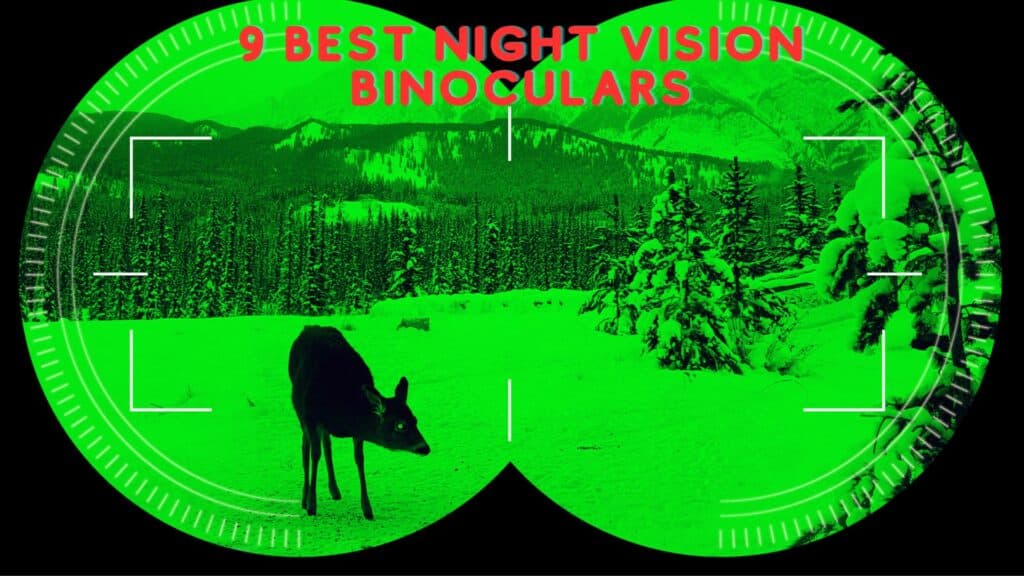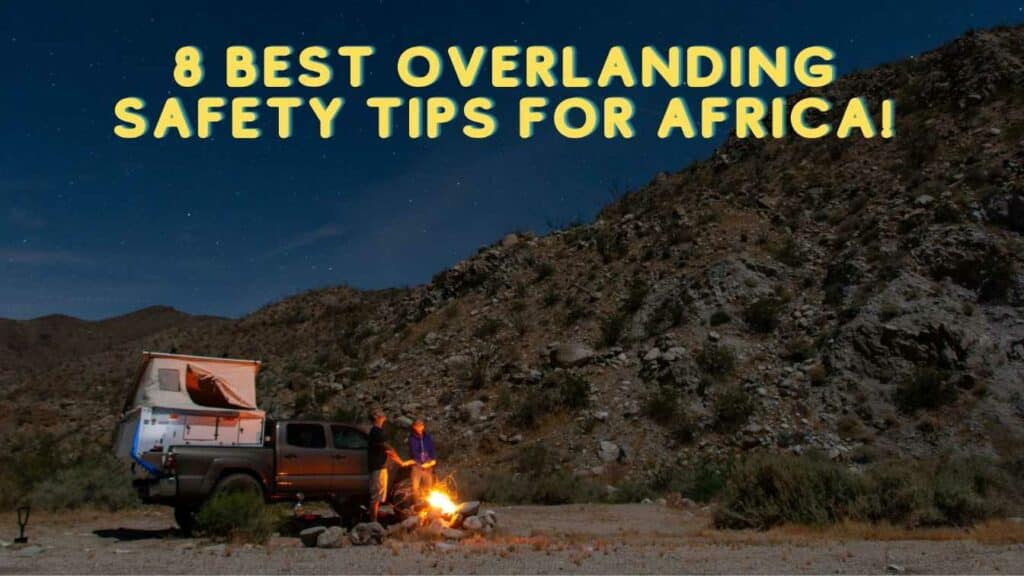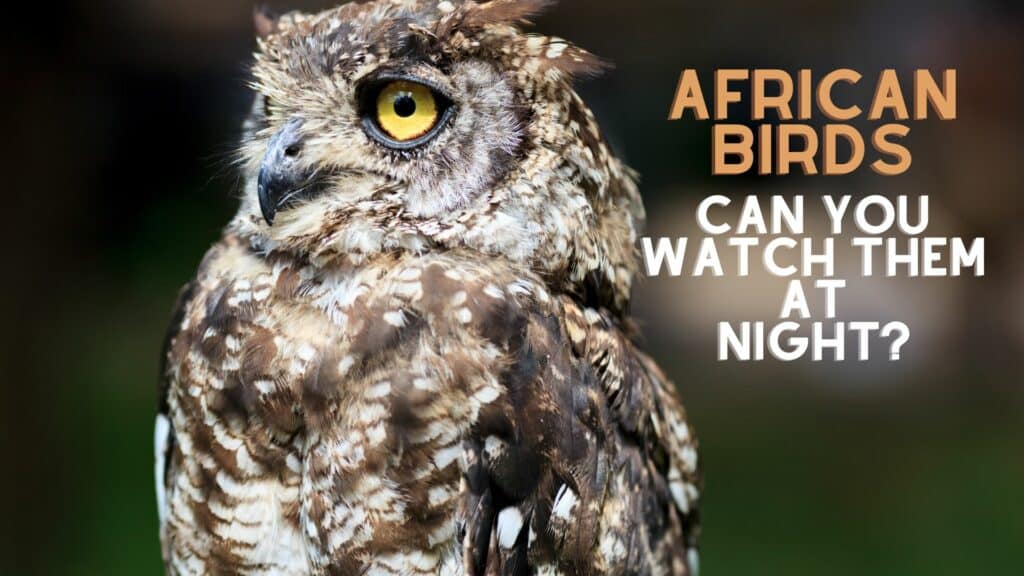There’s something about the African bush at night that feels completely different. The moment the sun sets, the landscape changes. The familiar animals you’ve watched all day seem to disappear, and suddenly the air is filled with new sounds, glowing eyes in the distance, and the feeling that anything could step out of the darkness.
I remember the first time I joined a night safari: I thought I knew the bush from daytime drives, but at night it felt like I was stepping into a secret world, and frankly, I was a bit scared! But as always, everything turned out well with the right guidance!
What You Might See After Dark on a safari?
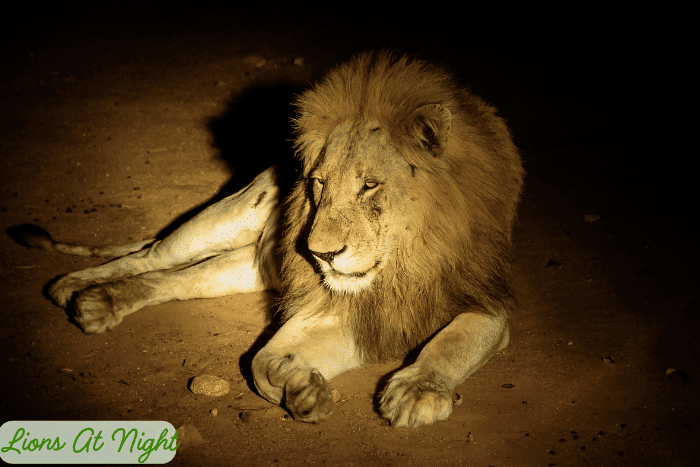
So, what’s actually out there when the lights go off?
- The predators wake up. Lions that looked like lazy house cats all day suddenly get serious. They stretch, regroup, and head out to hunt. Leopards move with even more confidence, blending into the shadows, and hyenas become bold, roaming in clans and calling out with that ‘laughing’ sound you can hear from miles away.
- Nocturnal specialists. Bush babies are always a favorite. Those huge eyes shining in the spotlight before they leap between branches — it never gets old. Civets and genets slink through the grass, porcupines shuffle along, and if you’re very lucky, you might even spot an aardvark. That’s a sight you don’t forget.
- Unexpected moments. Hippos grazing far from the water. A black rhino out browsing under the cover of night. Owls, nightjars, or even a chameleon glowing pale in the torchlight. These are the kinds of sightings that make you realize how much goes on when the sun’s gone down.
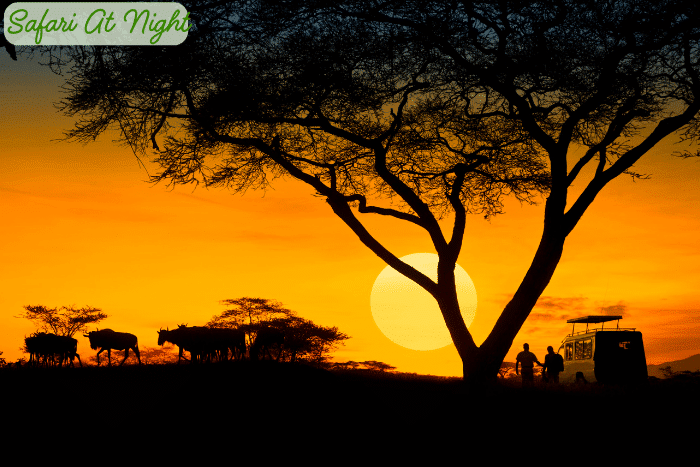
How Animal Behavior Shifts at Night
The real magic is not just who you see, but how they behave.
- Lions sleep through the day but become social and active hunters once it cools down.
- Leopards are at their best after dark: their night vision is so sharp that prey doesn’t stand a chance.
- Hyenas stop hanging around kills and actually go hunting themselves.
- Meanwhile, prey animals like impalas get jittery, sticking to open areas where they can at least hear or see danger coming.
Even smaller predators like servals show off their skills at night, suddenly leaping high into the air to pounce on a mouse they heard rustling. Watching these behaviors makes you realize how different the bush is once the lights go out.
Watch this video where one of the 2 jeeps gets stranded in Kruger Park, while they were literally surrounded by lions!
The Feeling of a Night Safari
Honestly, even without the animals, a night safari is worth it. The bush at night has its own soundtrack: crickets buzzing, frogs calling (there were so many at Pongola game reserve, I could hardly sleep at night!), lions roaring in the distance, hyenas laughing somewhere out there. Then you look up and see the Milky Way stretched across the sky, with barely any light pollution around you.
There’s also that little rush of adrenaline. When your guide stops, switches off the engine, and everything goes silent, you realize just how alive the night is (and yourself, too, haha). Every rustle, every shadow at the edge of the spotlight, makes your heart beat a little faster.
Challenges You Should Expect
Night drives aren’t always easy, and it’s good to know what you’re in for:
- Visibility is limited: you only see what the spotlight catches. Unless you have night-view binoculars!
- Photography is tough. Without specialist gear, most pictures will be blurry or grainy (and no, you can’t use flash).
- They’re not available everywhere — many parks don’t allow night drives unless you’re with an official guide or in a private reserve.
But for me, that’s also part of the charm. You don’t always see a lion kill or a rare species. Sometimes you just get quick glimpses of small creatures. That unpredictability makes the good sightings even more rewarding.
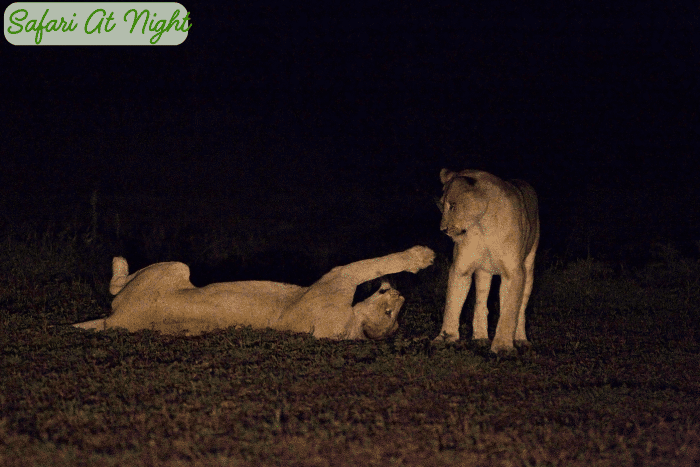
How Guides and Rangers Handle the Dark
The setup is usually simple: the same open 4×4 vehicles you use during the day, plus a spotlight. The guide or spotter slowly sweeps the beam across the bushes and trees, looking for eyeshine. More and more operators now use red filters on the lights, which are gentler on the animals and don’t ruin their night vision.
Some lodges go high-tech with thermal cameras or night vision goggles, but honestly, most of the magic comes from an experienced guide with a steady spotlight and a good ear.
Staying Safe and Respectful
A few ground rules make night drives safe for everyone:
- Stay seated and quiet — predators are active, and you don’t want to draw attention to yourself.
- Trust your guide — they know when to approach and when to hold back.
- No flash photography. It blinds the animals and ruins the moment.
- Respect the focus on nocturnal species. Good guides won’t shine lights on sleeping giraffes or elephants.
It’s all about observing without interfering.
Tips for Travelers
If you’re planning a night safari, here’s what I’ve learned (sometimes the hard way):
- Dress warmly. Even in hot regions, the wind on an open vehicle at night can be freezing. Layers are your best friend.
- Bug protection. Apply repellent before heading out, and wear long sleeves and trousers.
- Binoculars help. You’d be surprised how useful they are, even at night with a spotlight.
- Don’t expect perfection. Some nights will be quiet, others unforgettable. Go with an open mind.
- Stay alert. The rocking of the vehicle can make you drowsy after dinner. Coffee beforehand helps!
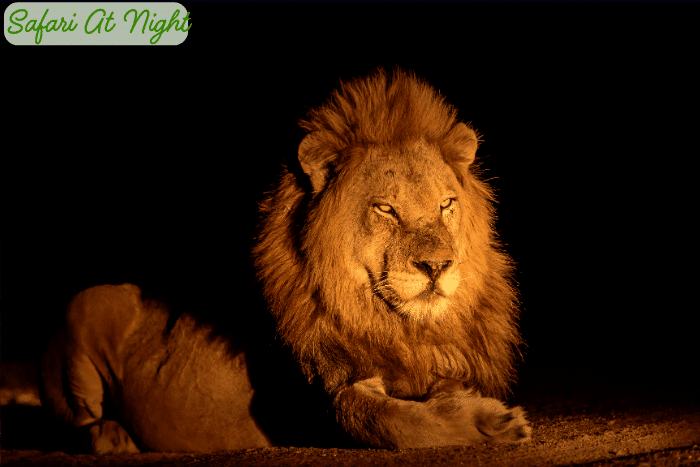
FAQs About Night Safaris in Africa
How long does a night safari usually last?
Most night drives last around 2–3 hours, starting after dinner and ending before midnight.
Do night safaris run year-round?
Yes, but the experience changes with the seasons. In the dry season, animals often concentrate near water sources, making them easier to spot. In the wet season, the vegetation is thicker, which can make sightings more challenging, but the atmosphere is even richer.
Are night safaris suitable for children?
It depends on the operator. Many lodges set a minimum age (often 6–12 years) since younger children might find it difficult to stay quiet or still in the dark. Always check beforehand.
Can I book a night safari in advance?
In most cases, yes. Lodges and private reserves often include them in their packages, while some national parks require direct booking with rangers or park authorities. Spaces can be limited, so it’s worth arranging early.
Conclusion – Why You Shouldn’t Skip It
For me, night safaris are one of the most memorable parts of being in Africa. Yes, you might miss the “big sightings” some nights, but you’ll also experience the bush in a way few people do. It’s the sounds, the stars, the possibility that something unexpected could appear at any moment.
If you’re planning a safari, try to include at least one night drive, and you might come back with a story you’ll be telling for years.
Have you experienced a night safari? Please tell in the comment section below!
Happy travels!
Kind regards,
Lizzy
I now have a YouTube channel as well!
YouTube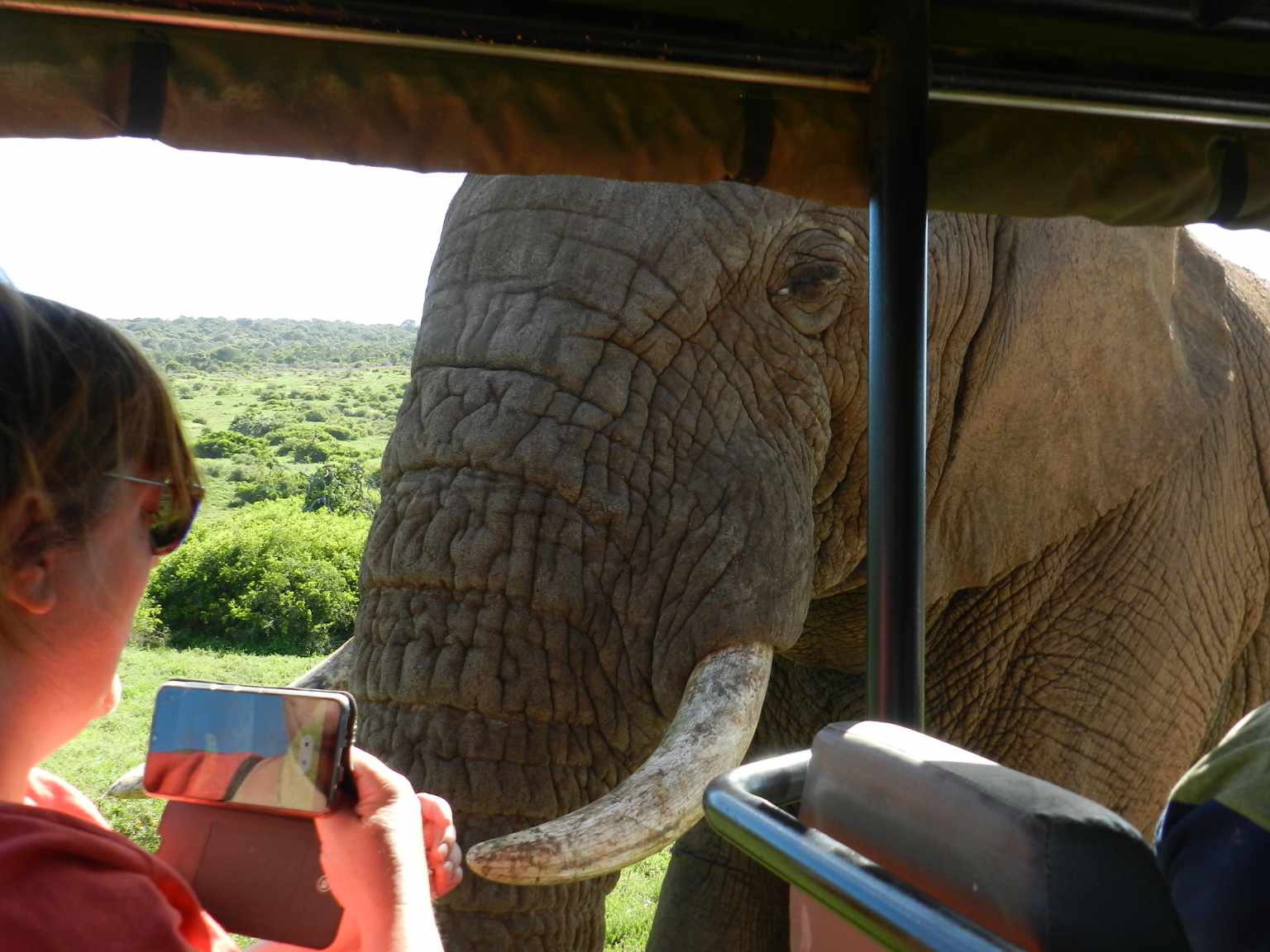
Hello Africa travellers!
Who am I? Well, the least you can say is that I am quite crazy about Africa, its nature, its climate, its culture, and more.
As a young woman in my twenties, I had already traveled to several African countries by traveling along in an overlander on my own and mostly camping ( or glamping ) and just fell in love with the diversity of it all.
So much, so that at the age of 26, I went back to university to study biology, which, unfortunately, I couldn’t finish because of health reasons (yes, I got sick from a tropical disease, oh cynicism). But this did not stop my dream of traveling back to Africa several times, and I still do.
My dream was back then to leave Europe and go study animal behavior, especially the elephants (sure, that’s every girl’s dream haha), but I am also very much intrigued by hyenas and other “ugly African animals“.
So, I “kind of” have a little bit of a scientific approach to my articles, when I write about African birds, for example. And most of all: the passion.
But life goes on, you move from one side of the country to the other, you get sick again and top it off with lower back problems, and before you know it, you are over 50 hahaha!
Now, I still travel to Africa, but take it a bit “easier” than the good old camping days, and stay in comfortable, yet affordable accommodations, together with my husband Wouter.
These are some of the countries I have traveled to: Kenya, Tanzania, Zanzibar, Malawi, Zambia, Zimbabwe, South Africa, Namibia, Botswana, Tunisia, and a little bit of Lesotho LOL .
While clearly not being African territory, but Spanish, I also visited Gran Canaria and Tenerife, and location-wise, I consider them “African”, because of their climate and nature, sue me :-p
The last trip I took was to South Africa in the year 2023, and it sure got the fevers for Africa back! From the Barberton mountains to the Drakensberg and the Southcoast, one month wasn’t enough at all to see the whole country, so we’ll be back! At ease and with a little bit more luxury than in my younger days haha!
I wish you happy travels!
Kind regards
Lizzy



